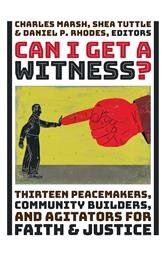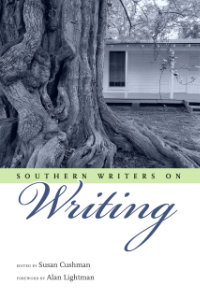A Place Like Mississippi: A Journey Through a Real And Imagined Literary Landscape
A Place Like Mississippi takes readers on a complete tour of the real and imagined landscapes that have inspired generations of authors. Eubanks is a native Mississippian who has spent time in all of the state’s 82 counties, and he knows its writers and its complicated history well. In A Place Like Mississippi, Eubanks honors and explores this landscape, and this history, as he reveals the many ways it has informed the work of some of America’s most treasured authors. Supported by contemporary and historical photography, A Place Like Mississippi is a must-read for fans of Southern literature.
Ever Is A Long Time: A Journey Into Mississippi’s Dark Past
In June of 1957, Governor James Coleman stepped before the cameras on NBC's "Meet the Press" and was asked whether the public schools would ever be integrated. "Well, ever is a long time," he replied," [but] I would say that a baby born in Mississippi today will never live long enough to see an integrated school." In this extraordinary pilgrimage, W. Ralph Eubanks recaptures the feel of growing up during this tumultuous era, deep in rural Mississippi.
Inspired by the 1998 declassification of files kept by the State Sovereignty Commission--an agency specifically created to maintain white supremacy--Ralph Eubanks embarks on an extraordinary pilgrimage to recapture the feel of growing up deep in rural Mississippi. Eubanks vividly evokes a time and place where even small steps across the Jim Crow line became a matter of life and death, he offers eloquent testimony to a family's grace against all odds. The result is a journey of discovery that leads Eubanks not only to surprising conclusions about his own family, but also to harrowing encounters with those involved in some of the era's darkest activities.
The House at the End of the Road: The Story of Three Generations of an Interracial Family in the American South
In 1914, in defiance of his middle-class landowning family, a young white man named James Morgan Richardson married a light-skinned black woman named Edna Howell. Over their more than 20 years of marriage, they formed a strong family and built a house at the end of a winding sandy road in South Alabama, a place where their safety from the hostile world around them was assured and where they developed a unique racial and cultural identity. Jim and Edna Richardson were Ralph Eubanks's grandparents.
Part personal journey, part cultural biography, The House at the End of the Road examines a little-known piece of this country's past: interracial families that survived and prevailed in defiance of Jim Crow laws, including those prohibiting interracial marriage. As he did in his acclaimed 2003 memoir, Ever is a Long Time, Eubanks uses interviews, oral history, and archival research to tell a story about race in American life that few readers have experienced. in lyrical, evocative prose, this extraordinary book pierces the heart of issues of race and racial identity, leaving us ultimately hopeful about the world as our children might see it.
Many Thousands Gone: An American Fable by Ronald L. Fair
Introduction by W. Ralph Eubanks
The premise of Ronald L. Fair’s short, parable-like novel, Many Thousand Gone: An American Fable (1965), is that in a rural corner of Mississippi—the fictional Jacobs County—slavery did not end in 1865 but continued uninterrupted into the 1960s through the brutal tactics of the local sheriff’s office and the willing complicity of surrounding counties. This new edition by Library of America features an introduction by W. Ralph Eubanks explores Fair’s extended metaphor for Black life under Jim Crow and reflects on the power of literature to illuminate the past.
Includes the essay “The Past Is Just Another Name for Today”
Includes foreword essay “Taking My Stand”







